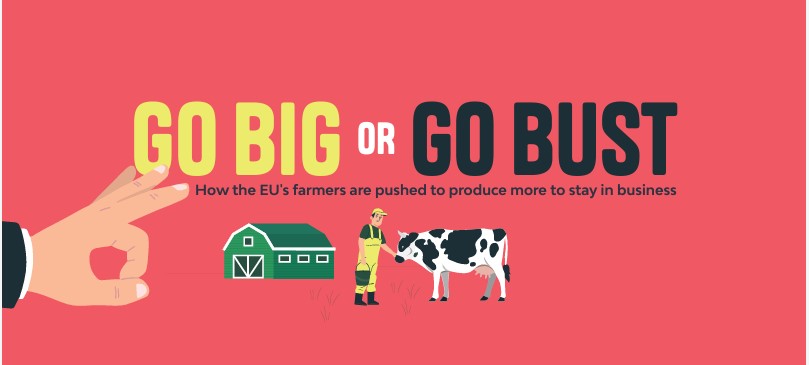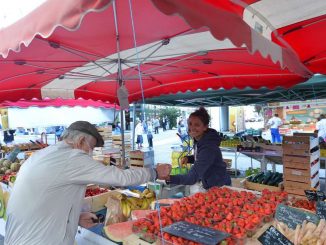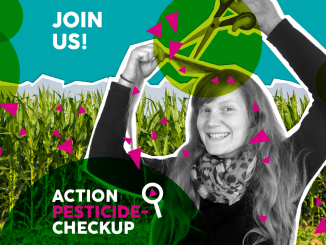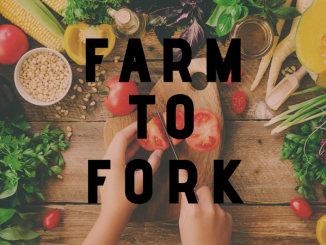A new study from the Greenpeace European Unit – Go Big or go Bust shows just how rapidly farming in Europe is going in a particular trajectory. Simply put, small farm are disappearing, and large farms are both getting bigger and are getting more economically dominant. These socio-economic realities contribute to social unrest and farmer’ protests. So far, the European Institutions have reacted in a knee jerk manner to protests, and have not addressed these underlining causes. Instead, Marco Contiero (EU Policy Director on Agriculture at the Greenpeace European Unit) argues in this op-ed that a better resourced system must put in place to encourage a transition towards a truly sustainable farming system.
Context
Farmers’ discontent reached a climax in early 2024, when tractors occupied the streets of several European capitals. Protestors complained about falling farm prices and increasing costs, competition from cheap imports, proposed cuts of diesel subsidies, measures to reduce nitrogen pollution, and (perceived) competition from Ukraine, among others.
Instead of focusing on farmers’ falling incomes and their exposure within a sector dominated by powerful food and chemical companies, food processors, distributors and retailers, conservative and far-right politicians seized the opportunity to scapegoat environmental regulations.
This led to a surprisingly rapid and allegedly illegal reform of the EU’s Common Agricultural Policy (CAP), which dismantled already weak green measures. What’s worse, emptying the CAP of its few remaining environmental elements did little to ease the economic struggle that many farmers face, diverting attention away from many of the concerns they raised. It only weakened farmers’ capacity to produce food in a sustainable way – especially since they are on the frontlines of the climate and nature crisis – undermining the resilience of their farms, which rely on a healthy environment to produce food and support food security.
Farming and numbers
But what is possibly even more problematic is that governments and the EU treat farmers as if they were a single and uniform category of businesses. They are not. A new report by Greenpeace, analysing information in the European Commission’s farm accountancy data network (FADN) over a period of a decade and a half, provides very clear evidence that not all farmers face the economic hardship that has brought tractors to the streets. The data shows that millions of small-scale, commercial family farms have seen their profits decreasing and are struggling to stay afloat. In many cases they have been forced out of business. In contrast, a minority of large-scale and often environmentally destructive farms are pocketing most of the profits the food and farming sector delivers.
According to Eurostat, the EU lost 5.3 million farms between 2005 and 2020, many of which were subsistence farms, going from 14,4 million farms to 9.1 million. Even when only considering commercial farms (farms large enough to deliver a level of income sufficient to support the farmer and his or her family), the EU lost almost two million small-scale farms between 2007 and 2022 – a decline of 44%. This declining trend is reversed for the largest categories of farms. Farms with an economic output of more than €250,000 per year grew by more than half (+56%) between 2007 and 2022. Small-scale farms, even those classified as commercial, are thus a dying breed, in the context of challenging market forces and subsidy regimes that feed this decline.
In the 15 years between 2007 and 2022, farms with an average economic output of less than €15,000 a year saw their profits declining by 18%. In the same period, large-scale farms with an annual economic output of more than €250,000 a year – representing only 8% of commercial farms in the EU – saw their average income increase by 84%. This 8% of businesses also collects 39% of EU agricultural subsidies for commercial farms, while holding 70% of all financial loans.
If one looks only at the largest farms, with an annual economic output of more than €500,000 a year, the picture is even more striking. These farms represent only 3% of all EU commercial farms, but account for 39% of the total economic output of EU agricultural production. Their number also almost doubled in the same 15 years, reaching 117,000 (out of 3.6 million commercial farms in Europe). These farms are generally the most polluting and environmentally destructive in Europe, where farm animals are often condemned to harsh treatment.
Once again, the picture is reversed for small-scale commercial farms. Their number has almost halved, with profound social and economic consequences. Employment on EU commercial farms dropped by almost 40%, with the vast majority of losses occurring on small-scale farms, where 3.8 million jobs were lost (a 58% decrease between 2007 and 2022). Employment on medium to large farms dropped by a more limited 160.000 units. At the same time, while more people were employed in mega-farms in 2022 compared to 2007, the increase was remarkably small, with only 306.000 more workers.
What to do?
To address farmers’ problems and their understandable discontent, the EU and national governments must put in place an effective and well-resourced system that encourages a transition towards a truly sustainable farming system. This means reforming a public subsidy regime that still disproportionately funds the farmers who need least support.
Instead, governments should help farmers who are genuinely in need and support those who restore and protect nature, in particular those who go beyond the minimum environmental requirements which remain. A fairer system would also mean enforcing rules against unfair trading practices, and regulating private sector finance to support small-scale and ecological farming.
These solutions are not new and have been endorsed by the landmark recommendations of the EU’s Strategic Dialogue on the future of Agriculture, backed by a broad set of stakeholders in the agriculture and farming sector.
Unless politicians are prepared to reform EU farming policies, the European countryside will continue to decline and farmer’s protests will continue to be exploited by politicians with an anti-democratic and anti-environmental agenda.
More
From Farmers for Farmers – and for Healthy Societies on a Planet Conducive to Life
Op-Ed – The Solution to Free Half of European Arable Land from Pesticides
‘Established democratic parties ignored problems of farmers for far too long’
EU Fails to Deliver on Food System Transformation in Face of Environmental Collapse
Letter from the Farm | Wild Geese and Tamed Farming – is it All for the Birds?
“A Fairer CAP”, Really? | Analysing Fairwashing in CAP Talks and Practices
CAP, Fairness and the Merits of a Unique Beneficiary Code – Matteo Metta on Ireland’s Draft Plan








